Design stories from around the world
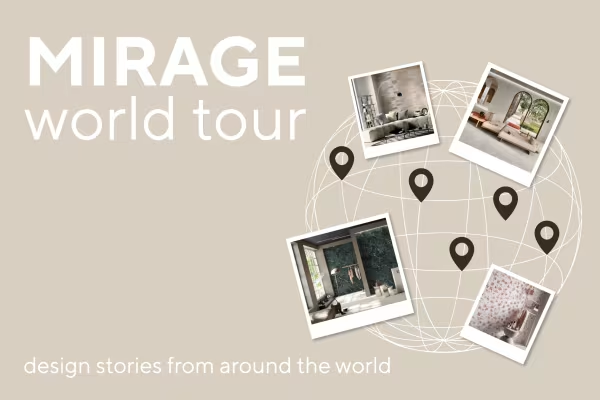
We’d like to accompany you on a journey, introducing you to our Mirage Project Points, located in vibrant cities across the globe, such as London, Milan and Dubai.
These are more than just showrooms, offering a chance for different cultures, innovations and ideas to come together and allowing for an exchange of visions and projects, with a view to shared growth and development. The Project Points play a vital role in providing inspiration for our projects, enriching our vision with new approaches to contemporary design.
Join us on a virtual tour through the heritage of the various nations that host the Mirage Project points, learning more about the most fascinating design movements. Let us introduce you to some design stories derived from a rich history and a timeless tradition.
Exploring Mediterranean style in Italy
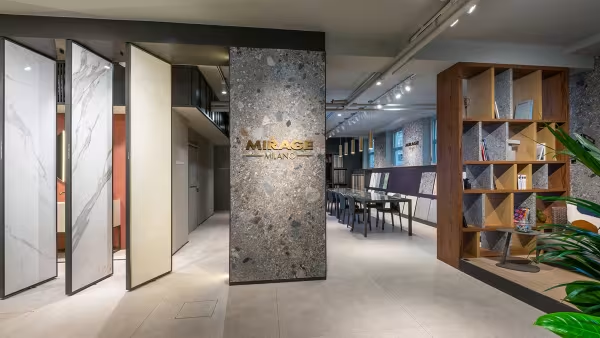
Through the centuries, mainland Italy has welcomed a variety of cultures and civilisations, each of which have contributed to the country’s incredibly rich heritage, pooling their influences to shape an impressively diverse artistic landscape. Elements of Greek and Roman culture, such as the magnificent Doric and Ionic columns, or brick vaults and structures, are a testament to Italy’s glorious past, which is also reflected in contemporary style choices. The outstanding quality of Italian design is also evident in the use of traditional, “humble” materials, widely admired for their genuine craftsmanship allure, such as wicker, lace and ceramic objects.
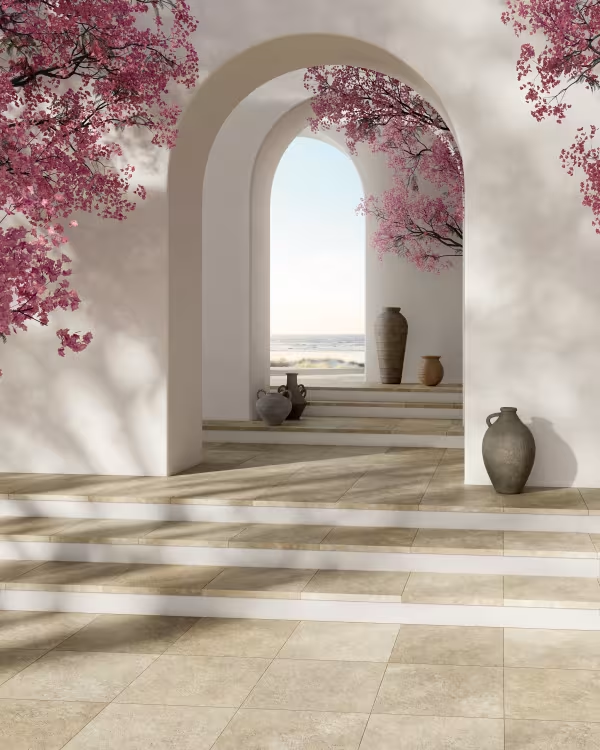
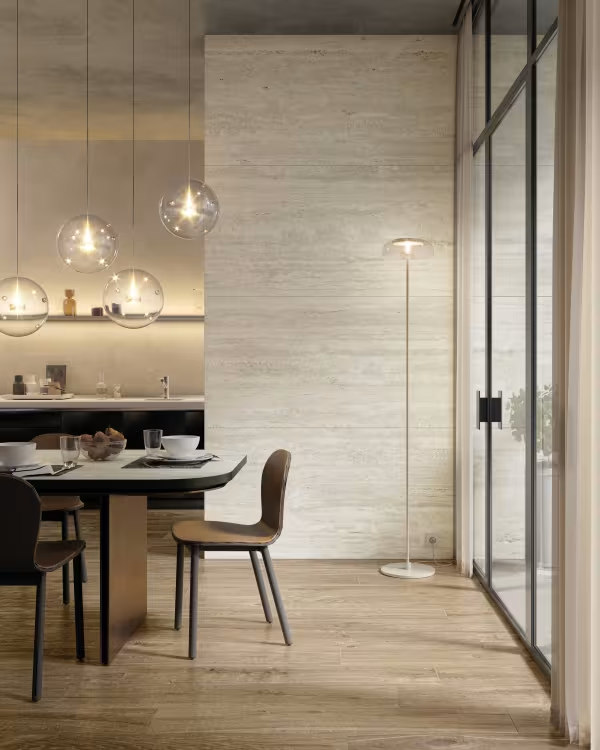
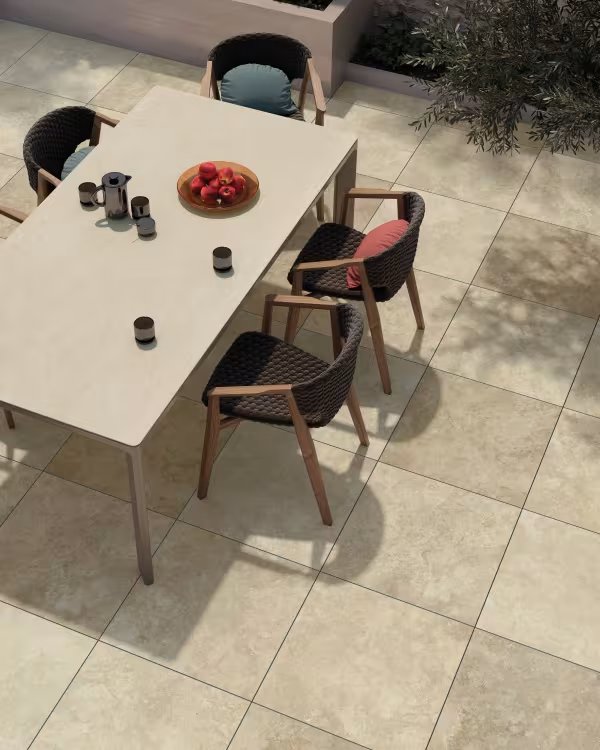
London and the Industrial Chic revolution
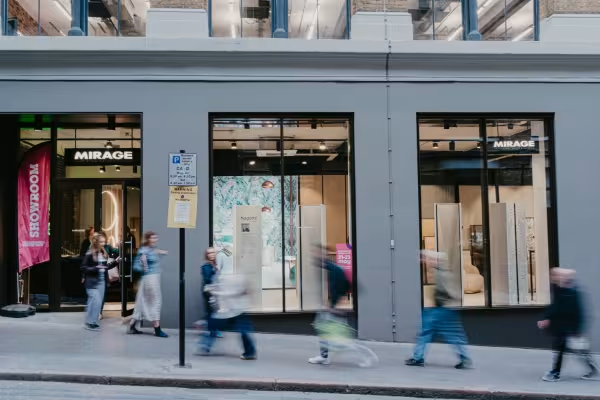
Large buildings with spacious rooms and high ceilings, a testament to this period in the country’s history, have now been redeveloped and repurposed into museums, visitor accommodation and entertainment venues. The Industrial Chic style of these buildings is based on the reuse and enhancement of the original architectural materials. London is one of the most vibrant centres of design, a multi-cultural, eclectic metropolis that is home to artists and designers of international renown. Thanks to its multi-ethnic composition, the capital is a melting pot of style influences that exist side by side with Victorian architecture, allowing for constant engagement between modern artistic sensibilities and a celebration of the nation’s history.
Industrial Chic style offers a fresh, modern take on the past, purposely maintaining and enhancing elements of the original constructions, such as large steel beams or open brick walls, skilfully combining them with contemporary elements.
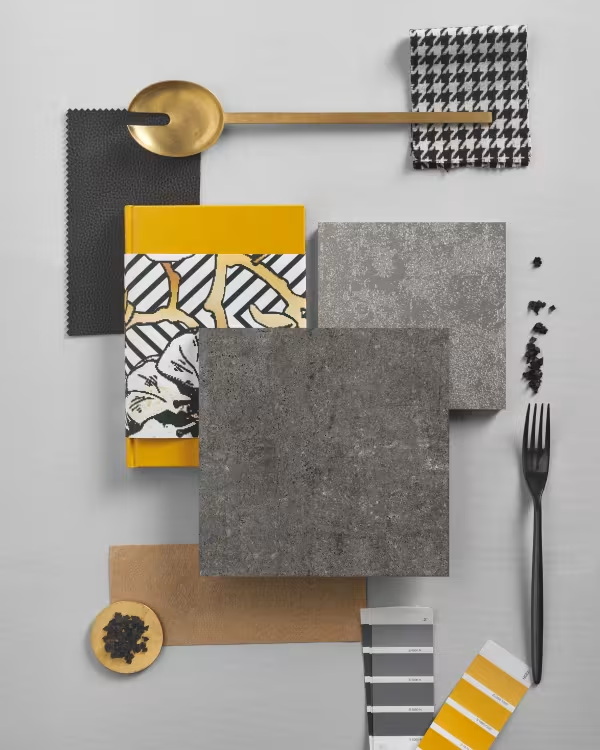
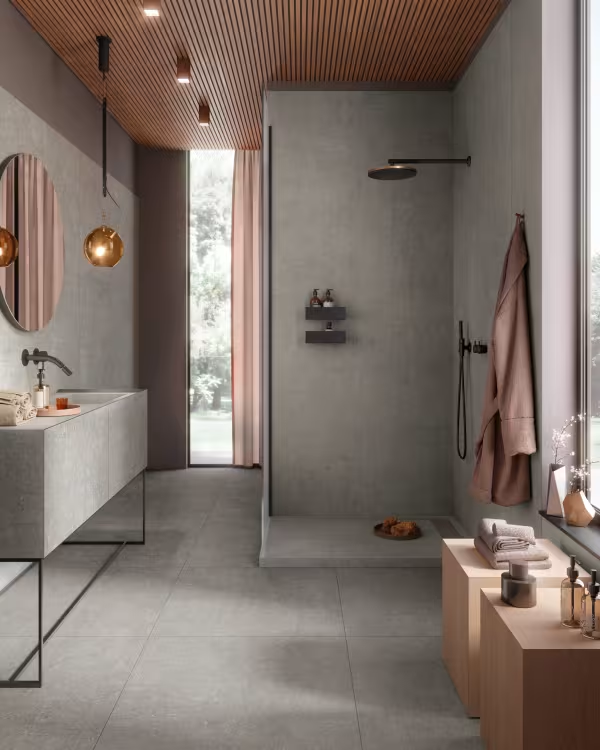
The colour scheme is made up mainly of shades of grey, black and earthy tones reminiscent of Gothic architecture, teamed with objects made from copper and brass.
Raw concrete flooring is a design choice that slots smoothly and stylishly into the Industrial look, combining the past and present of buildings. Nyuma is able to offer a perfect reproduction of the minimalism and versatility of classic exposed concrete casting, offering a more versatile alternative that is also suitable for external surfaces and surfaces in contact with water.
Dubai: the capital of contemporary luxury
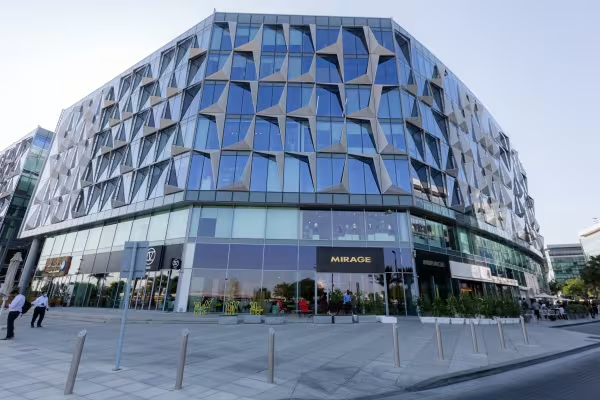
Today Dubai is best known for the spectacular, luxurious buildings that form its iconic skyline.
The city also remains a major trade centre, with its economic importance reflected in its sophisticated, luxury buildings and décor. Dubai is the epitome of contemporary luxury, paying closer than ever attention to the quality of the materials. Traditional elements of Arab culture, such as the use of polygons, stars and girih ornamental designs pay tribute to an exquisite craftsmanship tradition.
Colours that take their inspiration from precious stones and metals such as gold and silver; vibrant shades that engage with their settings, amplifying the light, with combinations of marble and lacquered or reflecting surfaces.
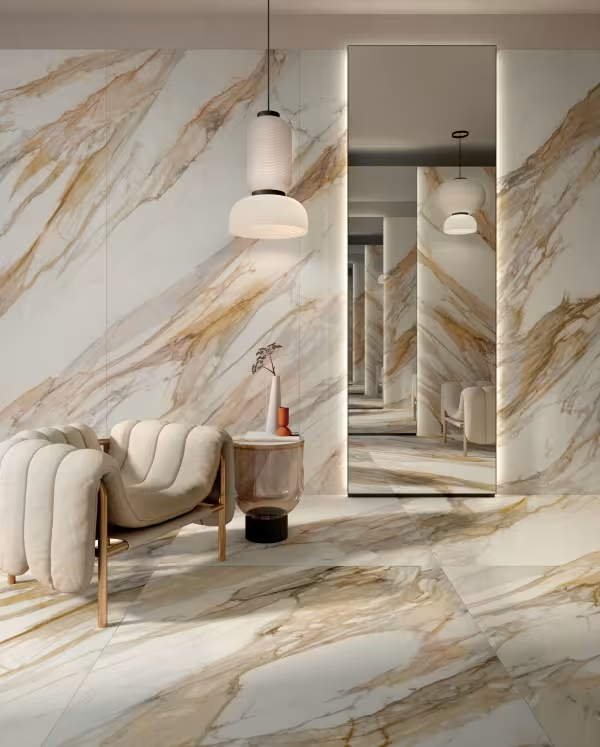
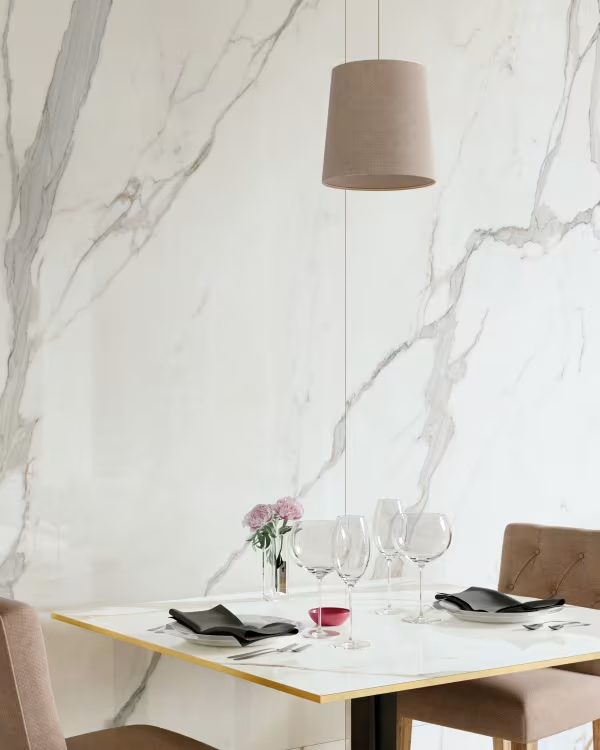
These elements are featured alongside more neutral, pure shades that create a spacious, airy impression.
The collection accurately reproduces the natural details and veining patterns of fine marble, teaming it with the versatility and resistance of porcelain stoneware. Jolie is ideal for enhancing settings, bringing a luxurious touch that takes nothing away from the simple, subtle elegance of contemporary design, and the latest trends that shift the focus away from opulence to the quality of the materials, with prime importance given to selecting products designed to last.
Living spaces are further enhanced with home automation solutions and a smart use of space by choosing balanced, functional décor elements. This trend is accompanied by a growing demand for responsible design, featuring recycled materials and innovative solutions selected to safeguard the environment.
Tropical style for Costa Rica
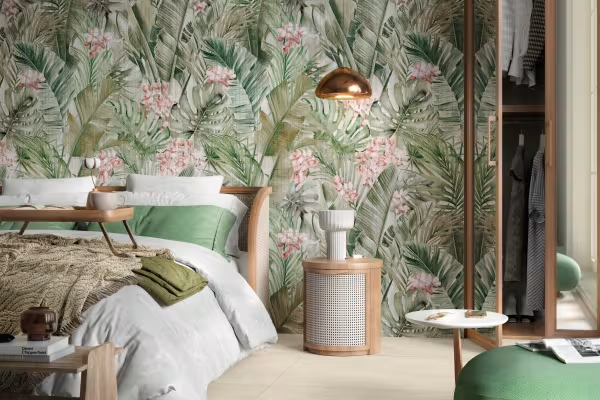
These elements, combined with the elements deriving from the Spanish colonisation, are evident in the local craftsmanship tradition, which uses natural materials such as linen and jute for the fabrics, or palm and banana fibre for decorative objects. These objects are incorporated into Costa Rican design, characterised by vibrant colours that bring a joyful, relaxing atmosphere to living spaces.
Colour schemes feature warm shades, while décor is characterised by natural textures such as wood or bamboo, broken up by shades of green, sometimes introduced into the home by adding plants to the interiors.
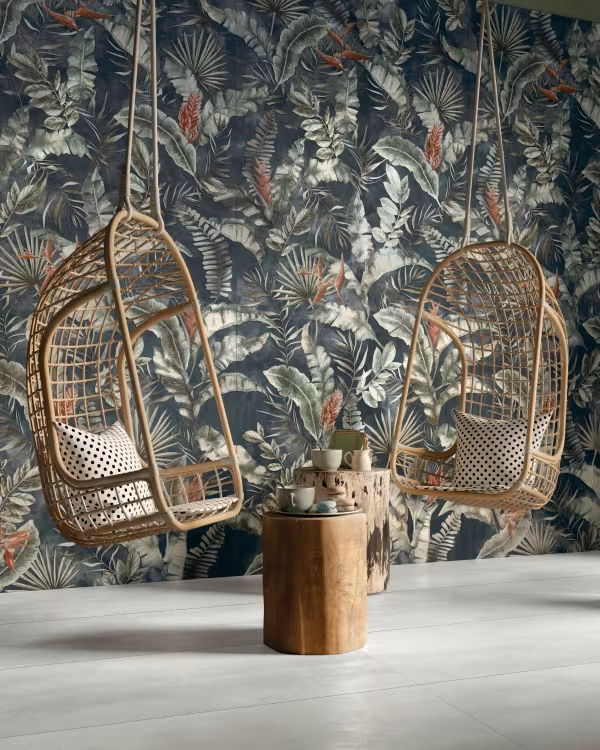
As in Mediterranean style, settings with a tropical inspiration also favour spacious, airy rooms, with a design that transitions smoothly from outdoors inside thanks to large windows, sliding doors and verandas.
This style makes it possible to smoothly combine plenty of different shades, fabrics and décor objects, allowing for a bold, maximalist approach that has been gaining ground in recent years.
The Papier collection lends itself to this approach to colour, with plant-inspired patterns that recall botanical elements in tones that shift from pastels to the vibrant hues of tropical nature.
Thanks to the versatility and resistance of the materials, the collection is able to create unexpected combinations, bring a touch of vibrant character to traditionally plain, simply furnished areas such as bathrooms and offices.
This journey through different trends and styles shows how design cuts across all environments, and that despite being conditioned by the cultural legacy of each particular area, it remains a universal language. Exploring and drawing inspiration from styles that differ less widely than it may appear offers us fresh inspiration for shaping our own living spaces, bringing on board innovative elements and coming up with surprising combinations.